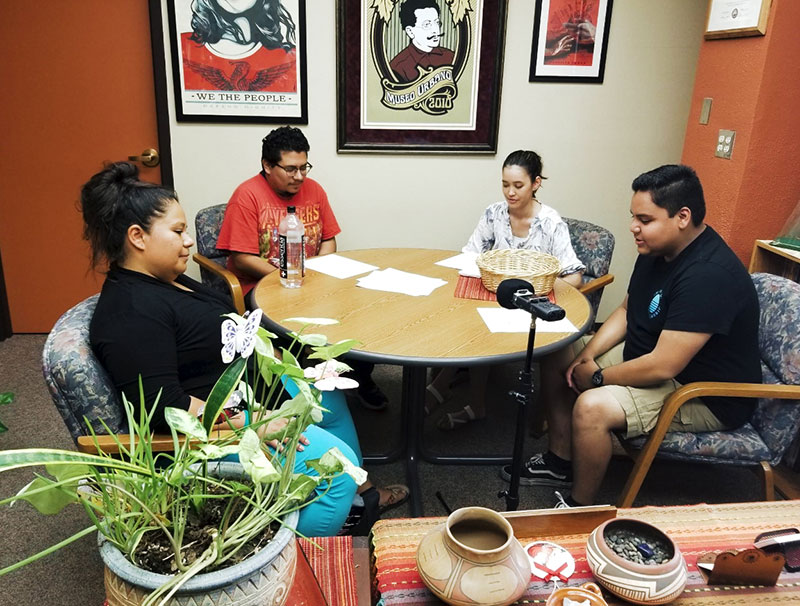
UTEP Institute to Upload More Digital Content This Fall
Last Updated on October 15, 2020 at 12:00 PM
Originally published October 15, 2020
By Daniel Perez
UTEP Communications
The University of Texas at El Paso’s Institute of Oral History (IOH) has started to augment its rich and accessible catalogue of stories with podcasts and videos to better serve community members with internet access.

Yolanda Leyva, Ph.D., associate professor of history and IOH director, said that the proliferation of user-friendly technology and tech-savvy students, who also are adept at research, has made it easier for the institute to create additional digital materials. The institute plans to add three podcasts and six videos.
The new offerings, which will be uploaded to the IOH website under “La Frontera Speaks” on alternate Fridays during UTEP’s fall 2020 semester, include episodes of the IOH podcasts, “La Frontera Speaks,” and “Voices from the Border” videos, which include stories from braceros, Mexican workers allowed into the U.S. legally for a limited time due to labor shortages because of World War II. Approximately 4.6 million contracts were granted to Mexicans who participated in the program that ran from 1942 to 1964.
“These new ways to share the incredible stories of the border are important because for those outside of our region, the border is often little understood,” Leyva said. “Political rhetoric villainizes us. These stories do the opposite. They humanize us and our history. For people in the borderlands, so much of our history is unknown even if our families have experienced historical events.”
Leyva thanked the Mellon Foundation-funded Humanities Collaborative at EPCC-UTEP for its help. The collaborative’s three undergraduate fellows and one graduate fellow, who worked in cooperation with the IOH staff, made this additional material possible.
“Their energy and enthusiasm for oral history inspires me,” Leyva said.
